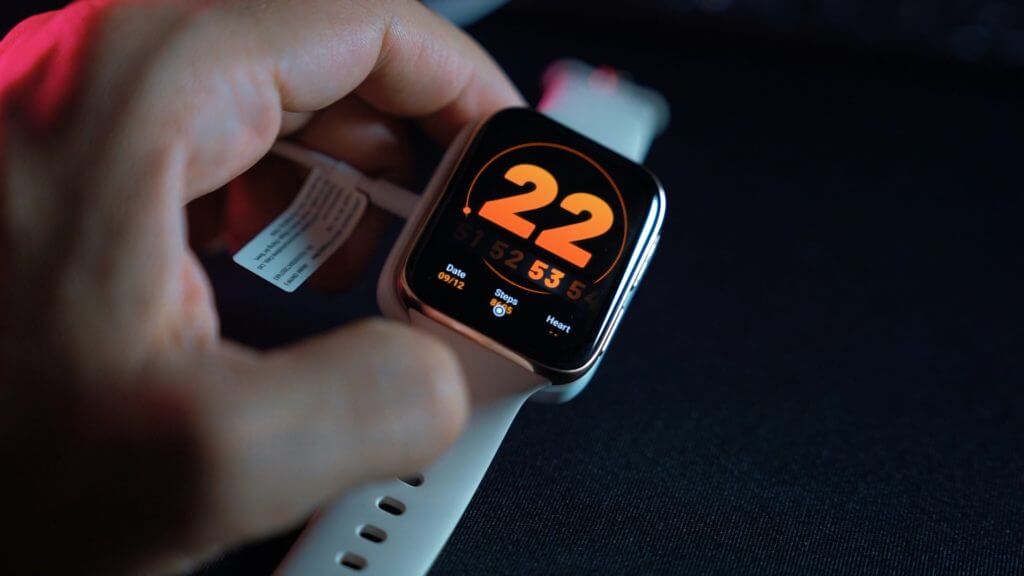We may earn money or products from the companies mentioned in this post.
Fitness Apps: A Scam or Success?
Most people are aware that their phone can help them lose weight. Ads for services like Noom, pepper podcasts and social media. Budget options like MyFitnessPal offer an easy in. Some fitness apps even come with hardware, like FitBit. But the fact that fitness apps are everywhere doesn’t guarantee that they’re the best option for getting healthy. If you’re skeptical that an app can help you to lose weight, read on. There are pros and cons to all fitness apps, but the real story is more complicated. They may help you get fit and healthy…but not on their own.
What are Fitness Apps?
Fitness apps are exactly what they sound like: apps that try to help you get healthy. Usually, they do this by tracking how much you eat, telling you when and how to exercise, or giving tips on nutrition. Some apps do all of the above. The idea is that your phone can become a combination personal trainer and nutritionist.
During the COVID-19 pandemic, fitness apps ballooned in popularity. A lot of this was due to the fact that gyms closed during lockdown. Folks stuck inside their houses also reported a great deal of both weight gain and boredom on social media. While there hasn’t been a lot of research on why people suddenly became interested in carbs and push-ups, the combo of stress eating and having nothing to do probably contributed.
Lockdown Ended, but Fitness Apps Stayed Popular
Even after gyms reopened, exercise app usage kept climbing. It looks like some people just want to exercise solo. Reasons may range. Many people probably like the luxury of a workout where they can set their own playlist. Apps are also easier to fit around a busy schedule. As for personal trainers, they can be expensive. Even if it charges for a premium subscription, fitness apps are usually cheaper.
Fitness apps are available for every platform and in every app store. Some operate on ad-supported freemium models, meaning that you can use them for a while if you’re willing to endure banner ads. Most will require a subscription if you want to us the full-featured version. About half of all smartphone owners have an exercise app on their phone. You may already be one of that 50%. In that case, you’re likely here to answer the big question: do they work?
Well…? Do they Work?
One thing’s for sure: people want them to work. According to a 2017 study, people who had downloaded a fitness app reported that they felt more motivated to exercise. But despite the general popularity of fitness apps, experts say there’s still no substitute for a human trainer. Their expertise can help you get more out of an exercise regimen than you could if you were moving it on your own. In fact, some psychologists have suggested that fitness apps are actually counterproductive. Not only do these game-like programs lose their novelty over time, the ones that try to help you with your diet miss a lot of the nuance of “good” versus “bad” calories. (Think of it as the difference between eating 100 calories of spinach and eating 100 calories of cookies.) Because of this, and because they can’t factor in hormones, medications, and other factors in weight gain, diet apps often fail. Not losing weight with an app demoralizes users. They may blame themselves and not want to try again. Fitness apps also tend to fall out of use very fast. Half the people who download a diet or exercise app will stop using it within a year. That defeats the point of developing long-term health.
of spinach and eating 100 calories of cookies.) Because of this, and because they can’t factor in hormones, medications, and other factors in weight gain, diet apps often fail. Not losing weight with an app demoralizes users. They may blame themselves and not want to try again. Fitness apps also tend to fall out of use very fast. Half the people who download a diet or exercise app will stop using it within a year. That defeats the point of developing long-term health.
Who Does.. Actually, Benefit?
As if all of this weren’t problematic enough, it now looks like only high-income people actually benefit from app-based fitness regimens. This is the case even if equal access is provided to people of low income. It’s not completely clear why this is. Some of it may be because of the digital divide. App-based exercise also requires an amount of time that some working-class folks don’t have available. The availability of healthy food and safe places to work out are also issues. The bottom line is that the people who need cost-effective, time-flexible health apps the most don’t seem to get much out of them.
When Fitness Apps Might, Work
That said, there’s also some evidence that apps can work in some settings. So far, the best results have incorporated another person, often a healthcare professional. Benefits have been the clearest for older people. Studies do suggest that using an app to direct your workout is better than nothing too. If you’re having trouble motivating yourself, an app might be a good place to start. Apps can also be ideal for people who don’t have much time, especially if they’ve exercised in the past and know what works best for their body type already.
Apps probably won’t get you all the way to your goal by themselves. But they can be a good jumping-off point. If you’ve decided to take the fitness app plunge, then now is the time to develop your IRL plan. You’ll have much more luck getting healthy if you use both the app and a more traditional approach to fitness.
Exercise in a Group
Committing to better health is a journey. Having an app is like having a Swiss Army knife: useful and prudent, but not the only thing you’ll need for success. The key to long-term physical fitness is people. Specifically, surround yourself with other people who want to get fit. If you all exercise together, you can hold each other responsible long after your interest in your running app as waned.
Exercising in a group is also good for your whole life. Not only are you more likely to stick to your fitness regimen, but you’ll feel happier about exercise. Social connection is good for your mental health too and helps you build habits that last.
Personal Trainers and Gyms
Personal trainers may be more hassle than apps, but they come with some significant benefits too. For one thing, a personal trainer can check your exercise form to make sure that you’re doing it right. Exercising wrong is a surefire way to injure yourself, thereby ensuring that you end up back on the couch anyway. The expense of the trainer also helps motivate you to show up and actually exercise. After all, you wouldn’t want to blow all that money by becoming a chronic session-skipper.
Finally, consider a gym membership. Really! While it’s hard to argue that a gym membership is more convenient than an app, the gym offers a better range of equipment and exercise opportunities. A YMCA may include a pool, basketball courts, and a variety of specialized training machines and objects. Who has space in their apartment for a full-sized heavy bag? More to the point, what app will be able to get you a swimming pool? Couple that with membership-inclusive classes, and the old-fashioned gym membership starts looking pretty sweet.
Conclusion
Fitness apps may work for you, especially if you’re busy or older. But it’s important not to overstate their benefits. An app can get you off the couch. People will keep you moving. Your best bet is to use an app in conjunction with other exercise strategies, whether those involve a gym or a running group. You might even have some fun while you’re at it. Good luck with your workouts!
You Might Like –https://www.thefullbyte.com/2022/06/18/telehealth-the-future-of-healthcare/



[…] You Might Like – Fitness Apps: A Scam or Success? […]